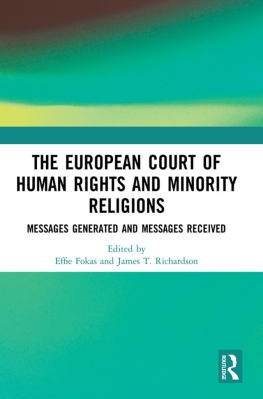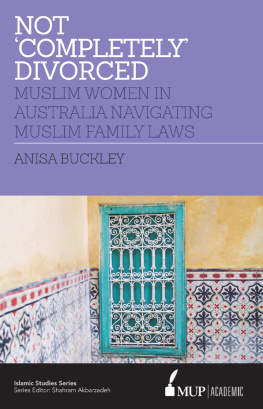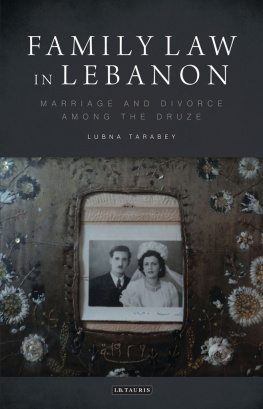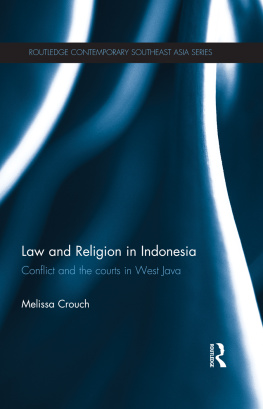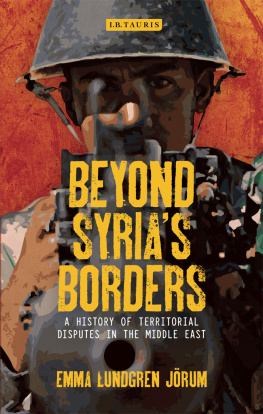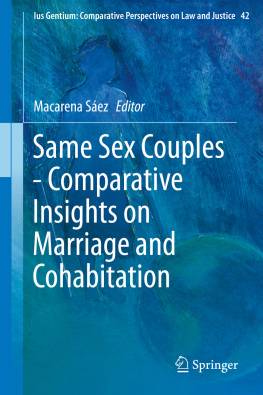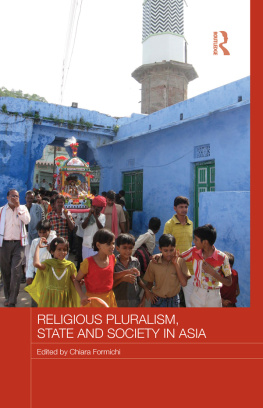
Esther van Eijk is a postdoctoral researcher in the Faculty of Law at Maastricht University and holds a PhD from Leiden University. Her work has appeared in the books Sharia Incorporated: A Comparative Overview of the Legal Systems of Twelve Muslim Countries in Past and Present (2010) and Family Law in Islam: Divorce, Marriage and Women in the Muslim World (I.B.Tauris, 2012). She has also published in the journals Electronic Journal of Islamic and Middle Eastern Law and Erasmus Law Review. She is Board Member and Secretary of the Dutch Association for the Study of the Law of Islam and the Middle East.
This is an excellent piece of work in a poorly researched topic. Indeed, while the personal status of Muslims has attracted much attention, family law of non-Muslim communities in Muslim-majority societies has been neglected. However, this study provides a wonderful entry into the legal and social evolutions of contemporary multi-confessional societies in which co-existence and tolerance have become especially problematic recently.
Baudouin Dupret, Director of Research at the National Centre for Scientific Research (CNRS), France, and Associate Professor for Law, Political Science and Anthropology at Leiden University, Netherlands and the University of Louvain, Belgium
This book is a significant addition to the literature on contemporary family law in the Middle East, with valuable research material on Syrian law and court practice presented within the frames of emerging scholarly themes.
Lynn Welchman, Professor of Law, School of Oriental and African Studies (SOAS), University of London
FAMILY LAW IN
SYRIA
Patriarchy, Pluralism and Personal Status Laws
E STHER VAN E IJK
Published in 2016 by
I.B.Tauris & Co. Ltd
London New York
www.ibtauris.com
Copyright 2016 Esther van Eijk
The right of Esther van Eijk to be identified as the author of this work has been asserted by the author in accordance with the Copyright, Designs and Patents Act 1988.
All rights reserved. Except for brief quotations in a review, this book, or any part thereof, may not be reproduced, stored in or introduced into a retrieval system, or transmitted, in any form or by any means, electronic, mechanical, photocopying, recording or otherwise, without the prior written permission of the publisher.
References to websites were correct at the time of writing.
Library of Islamic Law 7
ISBN: 978 1 78453 334 2
eISBN: 978 1 78672 019 1
ePDF: 978 1 78673 019 0
A full CIP record for this book is available from the British Library
A full CIP record is available from the Library of Congress
Library of Congress Catalog Card Number: available
Calligraphy on dedication page by Chafik Jeddou
There is a crack, a crack in everything
Thats how the light gets in.
Anthem, Leonard Cohen (1992)
NOTE ON TRANSLITERATION
In this book both Modern Standard Arabic and Syrian colloquial Arabic terms and expressions (with the exception of proper names and geographic names) are presented and transliterated into English. A simplified system is used without diacritical marks, except for the ayn () and hamza (), the latter only in the middle or at the end of a word. Long vowels have also been omitted.
LIST OF ABBREVIATIONS
| ASI | Association for the Social Initiative |
| CCEO | Codex Canonum Ecclesiarum Orientalium; Code of Canons of the Eastern Churches |
| CEDAW | Convention of Elimination of All Forms of Discrimination Against Women |
| CLPS | Catholic Law of Personal Status |
| CRC | Convention on the Rights of the Child |
| LR | Lois et Rglements |
| OLFR | Ottoman Law of Family Rights |
| SCFA | Syrian Commission for Family Affairs |
| SLPS | Syrian Law of Personal Status |
ACKNOWLEDGEMENTS
I am indebted to many people who contributed and supported me in various ways in the completion of this book. My utmost thanks go out to the people I met in Syria, who made it possible for me to conduct my research, both professionally and personally. In particular, I would like to express my deepest and most profound gratitude to Catherine and Muhanned, who have assisted me in my research in countless ways and who became dear and wonderful friends. I hope and pray that you will soon be able to return to your beloved country.
My thanks also goes out to my Syrian family who generously looked after me and, by sharing their lives and thoughts with me, have taught me invaluable lessons about Syrian history, family life, politics and culture. Also, I would like to extend my earnest appreciation and gratitude to judge Ibrahim and his clerk; judges Antoun and Eliyas and other staff members of the Catholic court of Damascus; staff members of the Greek Orthodox court of Damascus; and lawyers Ahmed, Hanan, Nawal, Rania, and Yusuf. My thanks are also due to other persons who I have interviewed and/or interacted with in various ways whilst in Syria.
My fieldwork stays in Syria were made possible by funding from the Leiden University Fund (LUF) and funding from the Leiden University Institute for Area Studies (LIAS), previously known as the CNWS. I would like to thank the now-dissolved Netherlands Institute for Academic Studies in Damascus (NIASD) and the (former) staff of LIAS/CNWS for their assistance during my time in Damascus and Leiden, respectively.
My sincere appreciation goes out to Lon Buskens for his support and constructive comments on earlier versions of this book. I would also like to thank Ton Meijers and Johan Meijer for their comments and suggestions on the sections on Eastern Catholic Law.
I also thank my (former) editor at I.B.Tauris, Maria Marsh, and her successor, Sophie Rudland, for guiding me through the publishing process, and Dan Shutt, production editor at I.B.Tauris, for the very pleasant and smooth co-operation in realising this book. A warm thank you goes out to Louise Massara, who did a great job copy-editing the manuscript.
I would like to extend my appreciation and thanks to the many colleagues in the field (in its broadest sense) whose valuable suggestions, thoughts, and work have contributed to the successful completion of this work, including, amongst others, Mohammed Al-Sulami, Mary Davies, Pauline Kruiniger, Iva Pea, Iris Sportel, and Maaike Voorhoeve. A special thanks goes out to Nadia Sonneveld for her encouragement and many valuable comments on my work. And to many others, unmentioned here but not forgotten I thank you.
INTRODUCTION
In April 2009 I attended a court hearing in the Greek Orthodox court of Damascus. A young couple seeking divorce appeared in the court for a cross-examination session. The plaintiff was a strong-willed woman who claimed that the marriage was never consummated and that she was still a virgin because her husband was not manly enough. The husband, for his part, was clearly annoyed and embarrassed by her allegations. In his defence he presented a little plastic bag to the court, which he said contained the proof that she had lost her virginity: the blood-stained cloth of the wedding night.


